|
For many of us, the “infancy narratives,” from Matthew and Luke are well loved, but also well worn. Gabriel’s visit to Mary, Mary’s visit to Elizabeth, the birth of Our Lord in Bethlehem — not only do we ponder these events every year during Advent and Christmas, but also every time we pray the Joyful mysteries of the rosary. We know the stories, we know what they illustrate, we know why they’re important. But knowing the basic bullet points of the New Testament is not enough. We are called to know our Lord more deeply, more intimately. Dei Verbum compares the gift of Scripture to the gift of the Incarnation: “for the words of God, expressed in human language, have been made like human discourse, just as the word of the eternal Father, when He took to Himself the flesh of human weakness, was in every way made like men” (13). The Holy Spirit has bundled the immensity and perfection of God into our limited and imperfect human language. Like Christ contained himself in human form, so too has the Father contained himself in our human tongue. This Advent, let us return to the infancy narratives with fresh eyes. Recognizing that, like St. Ignatius advised his Jesuits to do while on mission, we can use the Word to ignite our senses, engage our collective memory as the people of God, and to understand our Lord as both father and friend. The Visitation of Mary to Elizabeth (Luke 1:39-56) is one moment from the infancy narratives that can prepare us in a special way for the coming of our Lord this Christmas. It provides us with a snapshot of Mary as a loving servant who is familiar with the Scriptures, bubbling over with joy, and confident in the promises of her God. Her example is one we can imitate even today. Spend some time with the narrative here and then consider Mary’s threefold approach to Advent:
Amidst the flurry of shopping, visiting, and end-of-year work activities that will surely fill our Advent calendars this season, take five minutes a day to spend time with God in prayer. If you struggle with prayer and don’t know what to say, read the Magnificat. Imagine a young, triumphant Mary, glowing before gray-haired Elizabeth and try to imagine the feelings of joy and wonder Mary must have felt in those moments. Then ask the Lord to help you channel that wonder as you prepare a place for him in your heart. Let your soul proclaim the greatness of the Lord this Advent, through joy, Scripture, and service. **This blog was originally published on December 1, 2016.** **This image is from: https://diglib.library.vanderbilt.edu/act-imagelink.pl?RC=48279**
0 Comments
On May 31st, our Church celebrated the Feast of the Visitation—that hallowed moment when Elizabeth was greeted by her cousin Mary and when Scripture tells us that the infant leaped in her womb. We hear that the very first thing that Mary did after she was visited by the angel Gabriel was go and visit her cousin Elizabeth. The line that always sticks out to me from this Gospel account of the Visitation is: “During those days Mary set out and traveled to the hill country in haste.” Mary did not just travel to visit her cousin - to celebrate the faithfulness of God and what He had done for her – but she traveled immediately, quickly, and with haste. Not only did Mary know that the good news of the Incarnation - of God dwelling in her very womb - was too good to keep to herself, but she also knew of the importance of showing up for those whom she loved most. One of the things I believe most firmly about our lives as Christian disciples is that when we encounter the faithfulness of God (either in our lives or in the lives of those around us) we are called to share it with others. It can be all too easy to think that the stories of Mary and Elizabeth - one conceiving by the power of the Holy Spirit and the other receiving the gift of a child after being called barren - is some far off story that happened 2,000 years ago and not something applicable to us. We must ask ourselves: Where have I experienced the faithfulness of God in my life? Where have I seen it around me? Where am I being called to share it? Am I making haste to get there? I was lucky enough to attend a school called Visitation High School; as you drove up the main drive to our school building, there was a beautiful statue of Mary and Elizabeth embracing. Every day I was reminded of the great joy that they shared with each other and ultimately the peace that came by believing that what was promised to them would be fulfilled. (Luke 1:45). In our hurting, broken, and messy world, we could use more moments of making haste. Making haste to show up for a friend that we know is suffering. Making haste to share the good news of Jesus with a family member or friend. Making haste to celebrate our loved ones even while we experience sorrow or hardship. It is the great privilege of the Christian to make haste like Our Lady, to show up and to share the good news that,“The Mighty One has done great things for me, and holy is His name.” (Luke 1:49). **This post was originally published on 6/13/2019** “At the school of Mary, we learn that her life is marked not by protagonism but by the capacity to enable others to be protagonists. She offers courage, teaches people to speak, and above all encourages people to live the boldness of faith and hope. In this way she becomes the transparency of the Lord’s face who shows his power by inviting and calling people to participate in building up his living temple.” – Pope Francis, Homily on the Feast of Our Lady of Guadalupe, 2018
Such a strange thing Christ has done! He has left his mission to the baptized until he comes again in glory at the end of time. This is the part of Advent waiting that we often do not dwell on. The first half of Advent is very much focused, though, on this reality. Our waiting is not passive, but very active. We are protagonists who are called to boldly witness Christ in our lives. Bold witness in the way of Our Lady of Guadalupe, who encouraged St. Juan Diego to go forth to build not simply a physical temple in the Lord, but one that is living. In a time of needed renewal within the Church, we turn to the Blessed Virgin Mary to be with us, but also to give us example. She did not focus on the reality of the change in her life when she heard the message of the Angel Gabriel. Instead, she rose and went “in haste” to her cousin Elizabeth to rejoice and be in solidarity with her. Elizabeth’s son, St. John the Baptist, later went forth to prepare others for the coming of the Messiah through conversion of hearts and minds to the Lord. We, too, are meant to do the same. We cannot sit back and wait for others, but need to go forth with urgency, in haste, “inviting and calling people to participate in building up his living temple.” This inviting and calling that enables “others to be protagonists” has a name – co-responsibility. It is co-responsibility for the mission of Christ and his Church. Pope Francis invites us to “move towards a participatory and co-responsible Church, one capable of appreciating its own rich variety, gratefully accepting the contributions of the lay faithful, including young people and women, consecrated persons, as well as groups, associations and movements. No one should be excluded or exclude themselves” (Christus Vivit, 206). Therefore, may our Advent waiting not be passive, but very active in our bold witness of Emmanuel, King of the Nations and Prince of Peace! Our Lady of Guadalupe, pray for us. May the Charity of Christ urge us on! On August 15th, the Solemnity of the Assumption of our Blessed Virgin Mother into heaven, we celebrate Mary’s completion of life on Earth and her existence in eternity with Jesus. We can reflect on her sinless life as she was chosen by God to be the mother of Christ and also on her example of motherhood, grace, and virtue.
On this Marian feast, I feel a special closeness to the Blessed Mother because I recently found out that, I too, am preparing to be a mother. I ask for Mary’s intercession for a healthy pregnancy often and I hope to love more each day like she did. From her moment of saying, “Yes!” to God at a young age, to her worried searching for Jesus in the Temple, and even to her urging of her son at the Wedding at Cana to begin his ministry, Mary is a mother we can relate to. Her faith in God kept her focus on Jesus and his growth, safety, and well-being on Earth in order to ensure that he would fulfill his life’s mission to save us all from sin. Mary is the mother we can all imitate. Mary’s life was probably not an easy one. She faced speculation and ridicule from those in her community when she gave her Fiat and said yes to God’s plan. She lived at a time when a pregnant and unwed woman could be outcast from everyone she knew, but she persisted and trusted. Enduring these hardships could create doubt in someone’s mind and dissuade a person, but Mary stayed true to her grace-filled faith. I like to imagine that her cousin Elizabeth was a kindred spirit for Mary, someone who could support her and was also full of grace and faith. Joseph too, said “Yes!” to God, took Mary as his wife, and raised Jesus with strength and grace. He was a supporter for Mary and loved her, fully knowing his purpose as a protector and provider for the family. Throughout her life, we know that Mary reflected and pondered on the many blessings she had received. Scripture tells us she held them in her heart. Let us appreciate those special moments in our lives, too! Recently, I’ve been trying to take a moment each day to “hold things in my heart” and reflect on the goodness of God. Sometimes it’s when I see the sunshine for the first time that day. Other times it’s at the end of the day in a more reflective manner, and still other times it is in a crucial or stressful moment as I search for the good in what’s going on around me. There are many times throughout our days in which we could pause, reflect on a blessing, and have a grateful moment of prayer. On this Assumption, I challenge you to imitate Mary and learn from her grateful heart in this way. Below is a prayer from the Liturgy of the Hours, a method of prayer that seminarians, priests, religious sisters, deacons, and lay people participate in all over the world. This particular prayer is prayed on the feast of the Assumption. As we celebrate the Assumption of Mary, let us look to her example of faith and devotion and let us ask her to continue to bring us closer to Christ and help us to live for his glory. Almighty God, You gave a humble Virgin the privilege of being mother of your Son, and crowned her with the glory of heaven. May the prayers of the Virgin Mary bring us to the salvation of Christ and raise us up to eternal life. We ask this through our Lord Jesus Christ your Son who lives and reigns with you and the Holy Spirit, one God, forever and ever. Amen. On May 31st, our Church celebrated the Feast of the Visitation—that hallowed moment when Elizabeth was greeted by her cousin Mary and when Scripture tells us that the infant leaped in her womb. We hear that the very first thing that Mary did after she was visited by the angel Gabriel was go and visit her cousin Elizabeth. The line that always sticks out to me from this Gospel account of the Visitation is: “During those days Mary set out and traveled to the hill country in haste.” Mary did not just travel to visit her cousin - to celebrate the faithfulness of God and what He had done for her – but she traveled immediately, quickly, and with haste. Not only did Mary know that the good news of the Incarnation - of God dwelling in her very womb - was too good to keep to herself, but she also knew of the importance of showing up for those whom she loved most. One of the things I believe most firmly about our lives as Christian disciples is that when we encounter the faithfulness of God (either in our lives or in the lives of those around us) we are called to share it with others. It can be all too easy to think that the stories of Mary and Elizabeth - one conceiving by the power of the Holy Spirit and the other receiving the gift of a child after being called barren - is some far off story that happened 2,000 years ago and not something applicable to us. We must ask ourselves: Where have I experienced the faithfulness of God in my life? Where have I seen it around me? Where am I being called to share it? Am I making haste to get there? I was lucky enough to attend a school called Visitation High School; as you drove up the main drive to our school building, there was a beautiful statue of Mary and Elizabeth embracing. Every day I was reminded of the great joy that they shared with each other and ultimately the peace that came by believing that what was promised to them would be fulfilled. (Luke 1:45). In our hurting, broken, and messy world, we could use more moments of making haste. Making haste to show up for a friend that we know is suffering. Making haste to share the good news of Jesus with a family member or friend. Making haste to celebrate our loved ones even while we experience sorrow or hardship. It is the great privilege of the Christian to make haste like Our Lady, to show up and to share the good news that,“The Mighty One has done great things for me, and holy is His name.” (Luke 1:49). Have you ever wondered why the Church decided to celebrate Mary, as Mother of God, on the first day of each calendar year? After all, we’re still in the midst of Christmas! Isn’t this season already busy and full of Feast Days and devotions? Before she could be revealed as the Immaculate Conception, or celebrated as Our Lady of Fatima, Lourdes, or Guadalupe, or even honored as Lady Poverty by St. Francis, Mary first had to accept God’s will for her in salvation history in order to become the mother of the savior who was born on Christmas Day.
In St. Luke’s Gospel, Mary is first hailed as God’s “favored one!” If this title, bestowed by the Almighty’s messenger, wasn’t honor enough, Mary would later receive the even greater title of “Mother of God.” Her cousin St. Elizabeth would confer this title upon her with the words, “the mother of my Lord.” First, of course, Mary had to agree to what God asked of her! Mary may not have understood just how great the decision was that she made, but, despite her youth, she nevertheless had the great gift of faith in God. Because of her infinite trust in God and her famed fiat, we can definitively venerate Mary, the Mother of God, and ask for her intercession. Mary fulfills a unique role in the Mystery of Christ and the Church. Hailed as Theotokos (literally, “God Bearer”) by the Church in 431 at the First Council of Ephesus, Mary’s title reflects not only her role in salvation history, but also asserts the divinity of Christ. Just as the moon does not bear its own light but instead reflects the light from the sun, Mary entirely reflects the brilliance and grace of God. While a universal celebration on October 11 of the feast of the “Maternity of the Blessed Virgin Mary” was not declared by the Church until 1931 by Pope Pius XI, history records similar celebrations as part of the Christmas octave as early as the 13th or 14th century in Rome and Spain. Later celebrations developed in the 18th century in Portugal, Brazil, and Algeria and continued to take root around the world. After this great feast was finally moved to the first day of January by Pope St. John XXIII (in his 1960 revision of the liturgical calendar and rites), the Church would, at the Council Second Vatican, reaffirm Mary’s place in the Church Universal: Redeemed by reason of the merits of her Son and united to Him by a close and indissoluble tie, she is endowed with the high office and dignity of being the Mother of the Son of God, by which account she is also the beloved daughter of the Father and the temple of the Holy Spirit. Because of this gift of sublime grace she far surpasses all creatures, both in heaven and on earth. At the same time, however, because she belongs to the offspring of Adam she is one with all those who are to be saved. She is “the mother of the members of Christ... having cooperated by charity that faithful might be born in the Church, who are members of that Head.”… The Catholic Church, taught by the Holy Spirit, honors her with filial affection and piety as a most beloved mother. Even more recently, Pope Francis reflected upon why Mary is thus honored as the Mother of God and not just the Mother of Jesus: From the moment that our Lord became incarnate in Mary, and for all time, he took on our humanity. There is no longer God without man; the flesh Jesus took from his Mother is our own, now and for all eternity. To call Mary the Mother of God reminds us of this: God is close to humanity, even as a child is close to the mother who bears him in her womb. As we continue our celebration of Christmas, let us consider how, in His mother, God the Son was made Incarnate not only to be with us, but also to be like us! The Blessed Mother, seen in every nativity scene, faithfully watches over the infant in the manger as the Mother of God and also as mother to each of us! She does so with great love, silently in her heart (cf. Luke 2:51). In Mary we find what really matters—not only during the Christmas season, but in the whole of the Christian life. As her children, may we look upon Mary with love and faithfully call upon her intercession with great affection. For many of us, the “infancy narratives,” from Matthew and Luke are well loved, but also well worn. Gabriel’s visit to Mary, Mary’s visit to Elizabeth, the birth of Our Lord in Bethlehem — not only do we ponder these events every year during Advent and Christmas, but also every time we pray the Joyful mysteries of the rosary. We know the stories, we know what they illustrate, we know why they’re important. But knowing the basic bullet points of the New Testament is not enough. We are called to know our Lord more deeply, more intimately. Dei Verbum compares the gift of Scripture to the gift of the Incarnation: “for the words of God, expressed in human language, have been made like human discourse, just as the word of the eternal Father, when He took to Himself the flesh of human weakness, was in every way made like men” (13). The Holy Spirit has bundled the immensity and perfection of God into our limited and imperfect human language. Like Christ contained himself in human form, so too has the Father contained himself in our human tongue. This Advent, let us return to the infancy narratives with fresh eyes. Recognizing that, like St. Ignatius advised his Jesuits to do while on mission, we can use the Word to ignite our senses, engage our collective memory as the people of God, and to understand our Lord as both father and friend. The Visitation of Mary to Elizabeth (Luke 1:39-56) is one moment from the infancy narratives that can prepare us in a special way for the coming of our Lord this Christmas. It provides us with a snapshot of Mary as a loving servant who is familiar with the Scriptures, bubbling over with joy, and confident in the promises of her God. Her example is one we can imitate even today. Spend some time with the narrative here and then consider Mary’s threefold approach to Advent:
Amidst the flurry of shopping, visiting, and end-of-year work activities that will surely fill our Advent calendars this season, take five minutes a day to spend time with God in prayer. If you struggle with prayer and don’t know what to say, read the Magnificat. Imagine a young, triumphant Mary, glowing before gray-haired Elizabeth and try to imagine the feelings of joy and wonder Mary must have felt in those moments. Then ask the Lord to help you channel that wonder as you prepare a place for him in your heart. Let your soul proclaim the greatness of the Lord this Advent, through joy, Scripture, and service. "During those days Mary set out and traveled to the hill country in haste to a town of Judah, where she entered the house of Zechariah and greeted Elizabeth. When Elizabeth heard Mary’s greeting, the infant leaped in her womb, and Elizabeth, filled with the holy Spirit, cried out in a loud voice and said, ‘Most blessed are you among women, and blessed is the fruit of your womb. And how does this happen to me, that the mother of my Lord should come to me? For at the moment the sound of your greeting reached my ears, the infant in my womb leaped for joy. Blessed are you who believed that what was spoken to you by the Lord would be fulfilled.’" -Luke 1:39-45
Year after year, we hear this reading in the days leading up to Christmas. As we prepare for the day on which we celebrate the Son of God entering the world, we tend to hear this passage and focus on Elizabeth’s words: “How does this happen to me, that the mother of my Lord should come to me?” and “blessed are you who believed.” Rightfully so, we concentrate on Mary’s fiat and, thus, the beginnings of the life of the one who would save us all. However, we may tend to overlook another thing Elizabeth exclaimed: “the moment the sound of your greeting reached my ears, the infant in my womb leaped for joy.” John the Baptist would go on to be the great “forerunner of Christ.” As we commemorate the Feast of the Nativity of John the Baptist, we remember that it was he who prepared the way for Jesus’ ministry. John preached the coming of the Kingdom of God to the thousands that flocked to the desert to hear his preaching. It was he who baptized Christ in the Jordan, thus anointing him for his ministry. John the Baptist’s own ministry goes back to the moment when John, in his mother’s womb, hears the voice of Mary calling. That voice is not just that of a young woman, but a young woman who is the Mother of God. Thus, John, leaping in Elizabeth’s womb, seems to be recognizing and acknowledging the fact that the Lord Himself is present in Mary’s womb. Several years ago, then-Pope Benedict XVI made a comparison to John’s leap for joy: “Mary, expecting the birth of her Son Jesus, is the Holy Ark that contains the presence of God, a presence that is a source of consolation, of total joy. John, in fact, leaps in Elizabeth’s womb, just as David danced before the Ark.” Benedict reminds us of the scene in 2 Samuel 6 when David dances excitedly as the Ark of the Covenant is brought into Jerusalem. In both cases, the Word of God is physically present. Before John, the Word is Jesus in the womb of Mary. Before David, the Word is in the form of the Ten Commandments within the Ark. For them, being in the presence of the Lord was not something they took lightly. They were not afraid or saddened, they were filled with a joy so immense and so uplifting that the only way they could express themselves was by jumping and dancing. These Biblical events point to the line at the heart of Pope Francis’ exhortation: “The joy of the gospel fills the hearts and lives of all who encounter Jesus.” Faith in Jesus, who is the Word of God incarnate, is not something that should bring us down. It is not something that should feel like an overwhelming burden. When we go to a sports game or another competition, for example, we sit on the edge of our seats, waiting and hoping that our side will come out on top. When our team scores, we jump to our feet and cheer loudly. We clap and sing and even shed some tears. How much more, then, are we call to be excited when we are in the presence of God in the Eucharist or spreading the Good News to those we encounter? We are invited to witness to our faith gladly, for we believe in a God who loved us so much that He gave His only son to die for our sins so that we might be able to have eternal life with Him (cf Jn 3:16). That kind of love reminds us to live our life of faith happily. Pope Francis once commented, “I cannot imagine a Christian who does not know how to smile.” He was correct. How could a true believer exemplify the love of God with a frown? Let us follow the examples of David and John the Baptist who show us that true faith does not bring about sadness or dread, but instead brings us joy and peace. When we encounter someone who may challenge our beliefs, do not yell and scream back, but face that opposition with grace and a smile. When we go to Mass and notice that those around us may be mumbling their way through the hymns, I invite you to sing loudly and proudly, remembering that you are glorifying God. And when we get tired in our faith lives, let us be reminded of Christ’s love and sacrifice for us and, like John the Baptist, “leap for joy” ourselves. Victor David is a collaborator with the Catholic Apostolate Center and a staff member at The Catholic University of America in Washington, DC. "To let our lives speak a story of evangelization, to live out the Gospel, we must humble ourselves like Mary who lived as a handmaiden of the Lord."
Does your life speak a story of evangelization? I think about this question, and it is easy to think about the moments where I have really fallen short. I could have been kinder and more loving with a student who really needed me today. I could have been quicker to help a colleague in need. I know that I have missed clear opportunities to be Christ to others. As Christians in the age of the New Evangelization, we have been called more than ever to think about these moments and act with grace to better love God and share his love with others. The story of the Visitation deeply teaches us about bringing Christ to others. Mary has just learned that she is with child; yet she travels to Judah after she finds out that her relative, Elizabeth, is six months pregnant in her old age. Although Luke does not elaborate on the details, we can only imagine the sacrificial love beaming through this selfless act: Mary, in her first trimester of pregnancy (which is often filled with morning sickness and other trials), gives up time at home to care for a fellow expecting mother. Her heart is filled with joyful love as she physically brings Jesus to Elizabeth and her family. She is the “Theotokos,” or God Bearer. Elizabeth affirms Mary’s faithfulness and the gift of bringing Christ to her: When Elizabeth heard Mary’s greeting, the infant leaped in her womb, and Elizabeth, filled with the holy Spirit, cried out in a loud voice and said, “Most blessed are you among women, and blessed is the fruit of your womb. And how does this happen to me, that the mother of my Lord should come to me? For at the moment the sound of your greeting reached my ears, the infant in my womb leaped for joy. Blessed are you who believed that what was spoken to you by the Lord would be fulfilled.” Luke 1:41-45 It is clear that Mary’s life speaks a story of evangelization to others. Mary’s life and witness call us to be God Bearers to others, too. This may manifest in a physical way, as Mary physically brought Jesus in her womb to Elizabeth. During my time as a Catholic missionary for middle school and high school students, we reflected on the Visitation by bringing a friend to kneel with us in front of Jesus in the Eucharist in Adoration, physically bringing those we love closer to Christ. It was so humbling, and deeply moving to physically soak up Christ’s presence by being brought to him by someone you love. Perhaps Mary’s evangelization story calls you to bring others to Christ physically in the Eucharist, inviting a friend to attend Mass or Adoration with you. In this Jubilee Year of Mercy, Pope Francis explained in his Lenten message that “in the corporal works of mercy we touch the flesh of Christ in our brothers and sisters who need to be fed, clothed, sheltered, visited” (Pope Francis, 2015). Perhaps in your evangelization story you are called to serve those who need to know or be reminded of Christ’s love by your service. Whether directly or indirectly, as Catholics we trust that God makes every gift and sacrifice more perfect when done in his name. To let our lives speak a story of evangelization, to live out the Gospel, we must humble ourselves like Mary who lived as a handmaiden of the Lord. When we submit to the will of God and “do whatever he tells you” (John 2:5), surely we make Christ’s presence more known to others. Today we are called to let our lives speak a story of evangelization, just as the Visitation teaches us. We can entrust ourselves to Mary’s mission of bringing Christ to others, and know that through her patronage and guidance, our attempts to bring Christ to others will bear fruit in more lives than one. Pope Saint John Paul II entrusted his papacy to Mary with the simple prayer, “Totus Tuus,” or “totally yours,” knowing that Mary leads all hearts to her son, Jesus Christ. Let us, too, live in the spirit of the Visitation and follow the great evangelizers who have brought us closer to Jesus through Mary. Let your life speak a story of evangelization. To learn more about our call to let our lives speak a story of evangelization, visit our New Evangelization Resources page. Alyce Shields is a teacher in Washington D.C Both of my grandmothers had great devotion to the Blessed Mother. I remember going to their homes and seeing statues of Mary and other saints, prayer cards, and crystal and silver rosaries. I learned much from them and my mother about devotion to the Blessed Virgin Mary. Back in 1901, on this day, the feast of the Most Holy Name of Mary, my grandmother, Millie Donio, was born. During my childhood, though, I did not know that it was a feast day, because with the reform of the liturgical calendar in 1969, the feast was removed. Restored by Blessed John Paul II in 2002 in the revised Roman Missal, it is now an optional memorial. Interestingly, there is only one other feast related to the name of a person, the Most Holy Name of Jesus, celebrated on January 3rd. This feast day was restored in 1996.
The name, Mary, could mean “sea of bitterness” or, possibly, “beloved”. Consider for a moment how many situations Mary found herself in that could have resulted in bitterness. When the unwed young Mary was told by the angel Gabriel that she was pregnant by the “power of holy Spirit,” she did not focus on her own situation, but made herself available to her cousin Elizabeth (Lk 1:39-40). When her son, Jesus, went off preaching suddenly at age 30, the scriptures show no evidence of her complaining about it. Instead, she says, “Do whatever he tells you” (John 2:5). No bitterness there. When she is at the foot of the cross watching her son die before her eyes, powerless to do anything about it, she accepts being given over the care of the Beloved Disciple, he as her son, she as his mother (John 19:26-27). Sorrow, yes. Bitterness, no. A “sea of bitterness” around her, but she, being the perfect disciple, shows us the way to be. She shows us how to live as beloved by God. My grandmothers showed me how to live as one beloved by God. They each had their various hardships in life – physical sufferings, emotional difficulties, financial challenges – but each held firm to her faith and it was faith in God that sustained them. They each moved outside of themselves and cared for others, even in the midst of their own struggles. I will never forget going with Grandmom Donio quietly dropping off bags of fruits and vegetables at the back doors of the homes of people she knew were in need of them, but were not able to ask others for help. No words exchanged, we were not even seen, just an action done for good because the other is beloved by God. Being beloved by God does not mean there will be no suffering or challenge in life. Being beloved by God, called by our name in Baptism, which claimed us for Jesus Christ, we are not left alone to simply move through life. We have the ones we call by name, Mary who intercedes for us with the other person we call by name, Jesus, who is also the Son of God. We call also on the names of the other baptized in the community of faith, the Church. We call out with all of our needs as we live in what can seem at times like a “sea of bitterness.” But, we are not meant to be bitter in life, no matter what we experience. Pope Francis offers us encouragement to move out of ourselves toward others: “Let us never yield to pessimism, to that bitterness that the devil offers us every day; let us not yield to pessimism or discouragement: let us be quite certain that the Holy Spirit bestows upon the Church, with his powerful breath, the courage to persevere and also to seek new methods of evangelization, so as to bring the Gospel to the uttermost ends of the earth (cf. Acts 1:8)” (Audience with the College of Cardinals, March 15, 2013). What are we to do then? Not live in bitterness, but witness as ones beloved. We are to call others by name and assist them in being good disciples of Jesus Christ, following the pattern of life and asking the intercession of the one called Mary. Fr. Frank Donio, S.A.C. is Director of the Catholic Apostolate Center. |
Details
Archives
July 2024
Categories
All
|
About |
Media |
© COPYRIGHT 2024 | ALL RIGHTS RESERVED

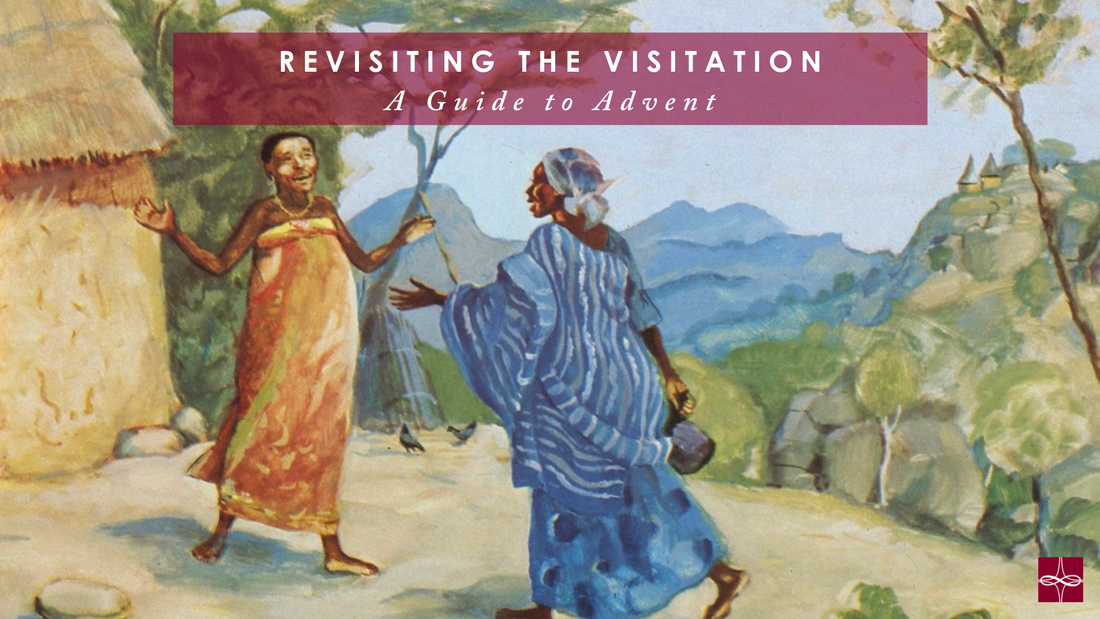

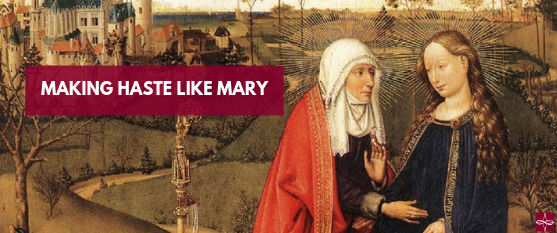

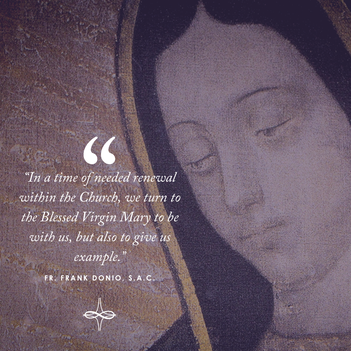
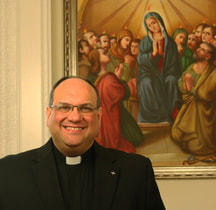
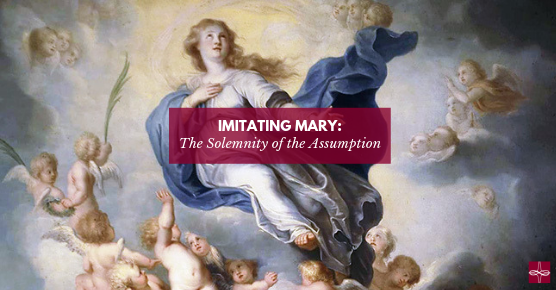

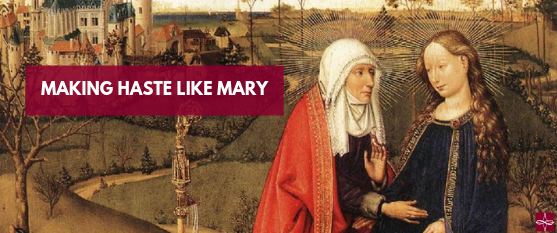

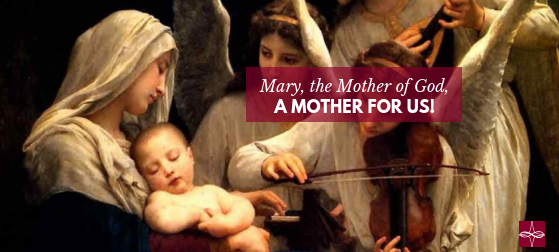

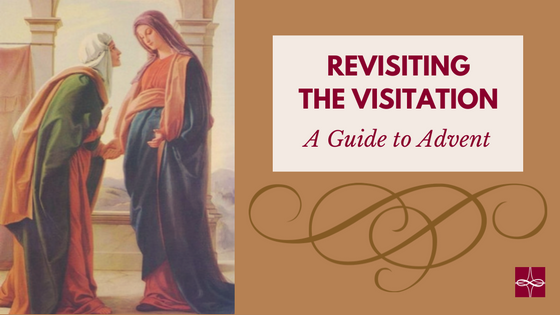

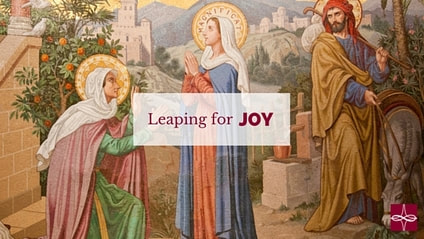
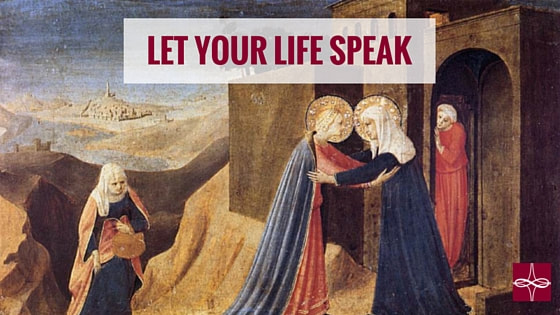
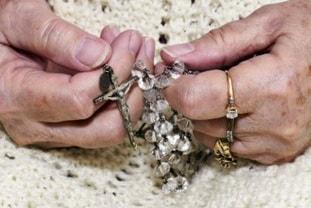
 RSS Feed
RSS Feed